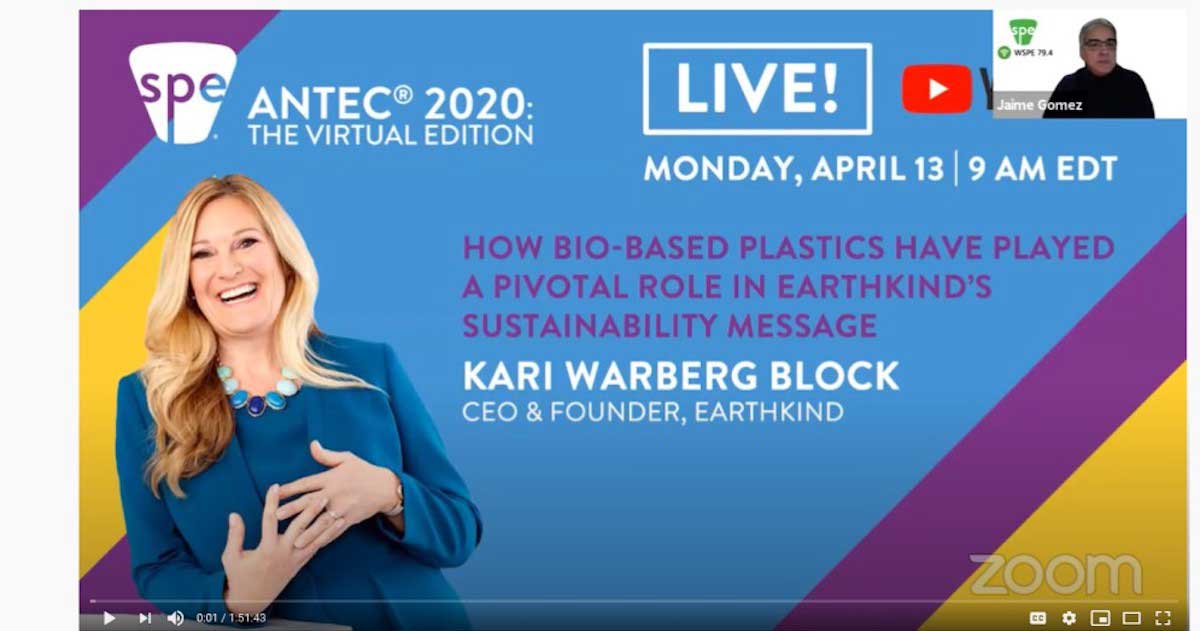At the beginning of March, after receiving “abundance of caution” guidance from the San Antonio Marriott Rivercenter, their Mayor’s Office, the CVB and local health officials, I made the difficult decision to cancel the Society of Plastics Engineers’ (SPE) annual conference, ANTEC®. Our 1,500 attendees, speakers, sponsors and exhibitors were scheduled to gather less than two weeks later in a city that was one of the first outbreak hotspots for the coronavirus. That was not to be.
On to Plan B…The Virtual Pivot
Pivoting from “live” to “virtual” is a process we are all being forced to figure out as live event disruptions continue and threaten to loom into 2021, or perhaps beyond. With nothing to lose, we went for it.
Through a herculean staff effort, our six-day live event was transformed into a virtual program that started pretty much on schedule—just 13 days later than the originally scheduled in-person event date. The results are as follows.
· ANTEC’s® usual three-day format of concurrent breakout sessions was converted into 17 days of consecutive presentations, totaling 96 hours of live-broadcasted programming delivered over an extended six-week period.
· Fifty of preregistered “live” attendees opted to join our virtual event.
· With new virtual attendee registrations, our total attendance was more than 250 percent greater than the projected attendance would have been for the live event.
· Sixty-five percent of the confirmed speakers agreed to present virtually.
· Seventy percent of pre-registered sponsors and exhibitors continued their planned participation, even with the new program format.
· The virtual event’s profit was 75 percent of the profit originally budgeted for the live event.
Coronavirus Dialogue Series: How to Create & Execute Virtual Meetings & Events
Conclusions
After now having time to reflect (and recover!), here are some key takeaways from our experience.
· Never, ever try to pivot a major event in only 13 days. (This one is from my team!)
· Which technology platform to use is not your most important decision, so don’t spend a ton of time looking at every emerging model out there. There are plenty of well-established options—Zoom, WebEx, GoToMeeting, etc. Each has different bells and whistles, but they are all equally serviceable for your virtual event’s core needs. Pick one your staff team feels comfortable with and get on to the more critical work.
· Spend your time developing processes. This whole thing is new for everyone—staff, speakers, attendees, sponsors. Create processes that take everyone into account. For example, consider how to help a speaker move from “Sure, I’ll present” all the way through to a successful virtual experience. The “who does what” needs to be thoughtfully and clearly defined each step of the way.
· Do not think in terms of replicating your live event virtually. You can’t. “Exhibits” and “floorplans” have no meaning in the virtual world. Instead, reimagine how you can create the outcomes each stakeholder expects from your meeting and consider how you can replicate those outcomes virtually. Our ANTEC speakers, for example, appreciated not only the opportunity to present their work, but also the interaction with sessions’ attendees after their presentations ended. Think deeply about how you can create your specific and defined outcomes using virtual platforms.
· Overcommunicate! Even as we all become more comfortable speaking, attending and connecting through these virtual platforms, there can still be a great deal of apprehension that comes with the unknown. Letting everyone know what to expect goes a long way to overcoming resistance.
· Il meglio è l'inimico del bene. Perfect is the enemy of good. We are all working in crisis mode, and people are (generally) very accepting of little missteps from those of us doing our best. At exactly the wrong moment, internet connections will fail or a speaker’s dog will bark. Don’t sweat the small stuff. Put on a good event and your stakeholders will appreciate the effort.
While we all look forward to the return to the next normal, we can survive—even thrive—by playing the hand dealt us and forging ahead.



